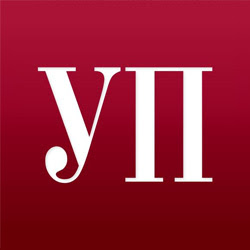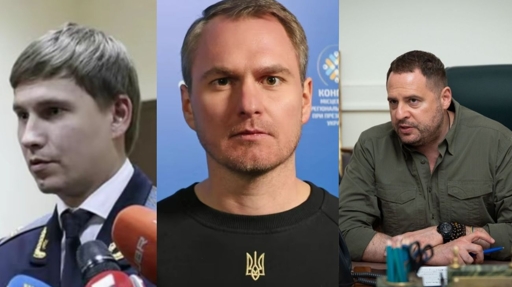Andrii Yermak, Head of the Ukrainian President’s Office, Prosecutor General Ruslan Kravchenko, and Dmytro Borzykh, a lawyer Kravchenko knew who has been served with a notice of suspicion by the National Anti-Corruption Bureau (NABU) and the Specialised Anti-Corruption Prosecutor’s Office (SAPO), took part in a “special operation” to destroy the independence of NABU and SAPO.
Source: Ukrainska Pravda (UP) article Who carried out the special operation to destroy the independence of NABU and SAPO, and how?
Details: The article states that the appointment of Ruslan Kravchenko as prosecutor general coincided with Minister Oleksii Chernyshov “deciding not to return” to Ukraine.
Chernyshov is a key figure whose home and office were searched by NABU and SAPO in late May in a large-scale corruption case. At the time, the President’s Office already suspected that a notice of suspicion would be served.
The first project the President’s Office discussed with Kravchenko was the destruction of the independence of the anti-corruption system.
The key “producer” behind this “project”, as with all other sensitive decisions, was the head of the President’s Office, Andrii Yermak.
Several UP sources in law enforcement said Kravchenko assured the state leadership during a meeting that he would handle the task.
On the day of the vote on Kravchenko’s appointment as prosecutor general, rumours were swirling within law enforcement circles that one of his first tasks would be to “rescue” Chernyshov by transferring the case from NABU to a body controlled by the President’s Office.
Some of UP’s sources in law enforcement agencies – both independent and President’s Office-controlled – say that along with Kravchenko, Dmytro Borzykh, a lawyer and former deputy military prosecutor, emerged in Ukrainian politics as a possible replacement for Andrii Portnov, a lawyer and court fixer who was close to the fugitive former president Viktor Yanukovych, after his death in Madrid in May 2025.
Borzykh and Kravchenko have known each other since they worked together at the military prosecutor’s office.
After leaving the prosecutor’s office, Borzykh went into private practice, founding a law firm that specialised in high-profile cases involving law enforcement officers, officials and the judicial system.
According to UP’s sources, after he was appointed prosecutor general, Kravchenko considered Borzykh as a candidate for a senior position on his team.
However, this plan was derailed by the notice of suspicion, announced by NABU and SAPO in April 2025, in a case concerning illegal access to the closed section of the judicial register.
The investigators found that Borzykh and his colleagues had regularly used a special script to obtain information about classified court rulings, including searches, before they became available to the parties involved.
Despite this, sources say Borzykh remained an informal adviser to the prosecutor general. He has no official status, but continues to stay in touch with some in the prosecutorial community and takes part in informal discussions. Borzykh has been named as a possible consultant in the work on draft law No. 12414.
“A very well-written law. Only someone deeply embedded in the system could have drafted it,” an influential Ukrainska Pravda source within the same system says. “The only problem is that there seems to be a miscalculation with the instinct for self-preservation.”
When UP contacted Kravchenko, he said: “Yes, I am acquainted with Dmytro Borzykh – he was deputy chief military prosecutor during the period when I also served in the prosecution bodies. Dmytro Borzykh was never considered for the position of deputy prosecutor general, regardless of his personal circumstances. As for contact – I have no contact with him.”
Support Ukrainska Pravda on Patreon!
From Ukrainska Pravda via this RSS feed


